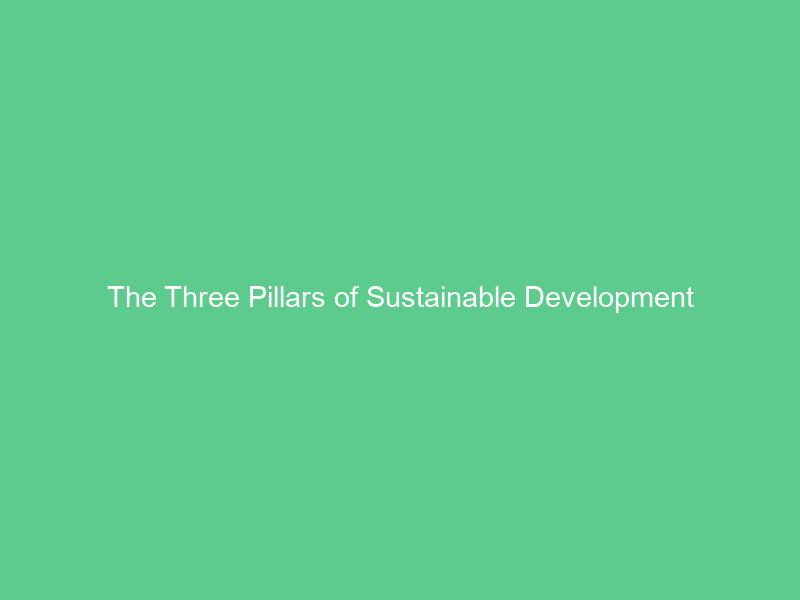Sustainable development rests on three pillars – economic, environmental and social. To be effective, policies in each of these areas must work hand-in-hand for maximum effect.
Human needs continue to expand while resources on earth remain finite, which necessitates population control as part of sustainable development. Furthermore, green technologies and nature conservation should also be prioritized in sustainable development strategies.
Environment
Environment protection and conservation are integral parts of sustainable living, providing us with vital air and water purification services. In order to achieve lasting sustainability it is vitally important that these natural resources are safeguarded.
Environmental sustainability has become ever more crucial as world populations continue to increase while natural resources remain finite, prompting concerns over Malthus’ theory of overpopulation and resource degradation (Kates et al, 2001).
Countries can promote sustainable development by aligning economic growth with nature’s regenerative capacity. Countries should enact laws and policies that support this effort, such as polluter pays principles or environmental taxes. Furthermore, they should implement strategies to lower pollution levels through measures like turning urban areas into green spaces or community solar gardens to lower pollution levels while improving air quality while simultaneously strengthening social cohesion and tolerance. Furthermore, educational programmes that inculcate SD principles into schools may also help.
Economy
Economic sustainability means ensuring growth occurs without jeopardizing future generations’ ability to meet their needs. To do so responsibly and fairly requires adopting practices such as transparency and the “polluter pays” principle (Ben-Eli 2015). Polluters should pay for polluting our natural environment rather than passing these costs along to society (Ben-Eli 2015).
Sustainable development encompasses policies that support greener energy sources, limit deforestation and foster more efficient and resilient infrastructure development. Furthermore, sustainable development should promote local economic development that is inclusive rather than extractive; consumers have become increasingly interested in purchasing eco-friendly goods and services.
Brundtland Report’s 1987 publication made sustainable development an internationally acknowledged concept, with its ultimate goals being the alleviation of poverty and hunger, preservation of natural resources on our planet, as well as guaranteeing each person enjoys health, dignity, and prosperity.
Society
Sustainable development efforts require engagement by all sectors and agents of society. Sustainability of societies hinges on access to good health systems, peace and human rights protections, decent work with quality education provision and an environment which respects biodiversity – essential components of a globally sustainable society that can ensure all its citizens an enjoyable living experience.
Additionally, global production and consumption practices must fully align with nature’s ecological processes. Furthermore, tolerance, social cohesion, and justice must be fostered in order to create healthy communities.
SDGs 1-17 exist as interdependent goals with many synergies and complementarities among them, particularly between goals 1 (no poverty), 2 (zero hunger), 3 (good health and well-being), 4 (quality education), 5 (resource efficiency), 6 (sustainable cities and communities), 7 (clean energy), 11 (sustainable agriculture) and 12 (responsible consumption and production). Yet certain goals could also be jeopardized by others.
People
Sustainable development offers numerous advantages to people, such as accessing living-wage jobs and quality health care. Furthermore, sustainable development ensures natural resources are used responsibly without harming either people or nature.
Sustainable development can create a world where all people can live in peace, equality and justice. Furthermore, sustainable development can make society more inclusive by encouraging tolerance and social cohesion as well as reduce violence by emphasizing human rights.
Attaining the 17 Sustainable Development Goals (SDGs) by 2030 requires a global partnership that prioritizes human needs. These goals – which include ending poverty, zero hunger and good health and well-being; affordable and clean energy production and consumption, responsible consumption and production practices, life on land (fighting desertification and biodiversity loss); peaceful societies offering equal access to justice and effective institutions – reflect international human rights standards.

